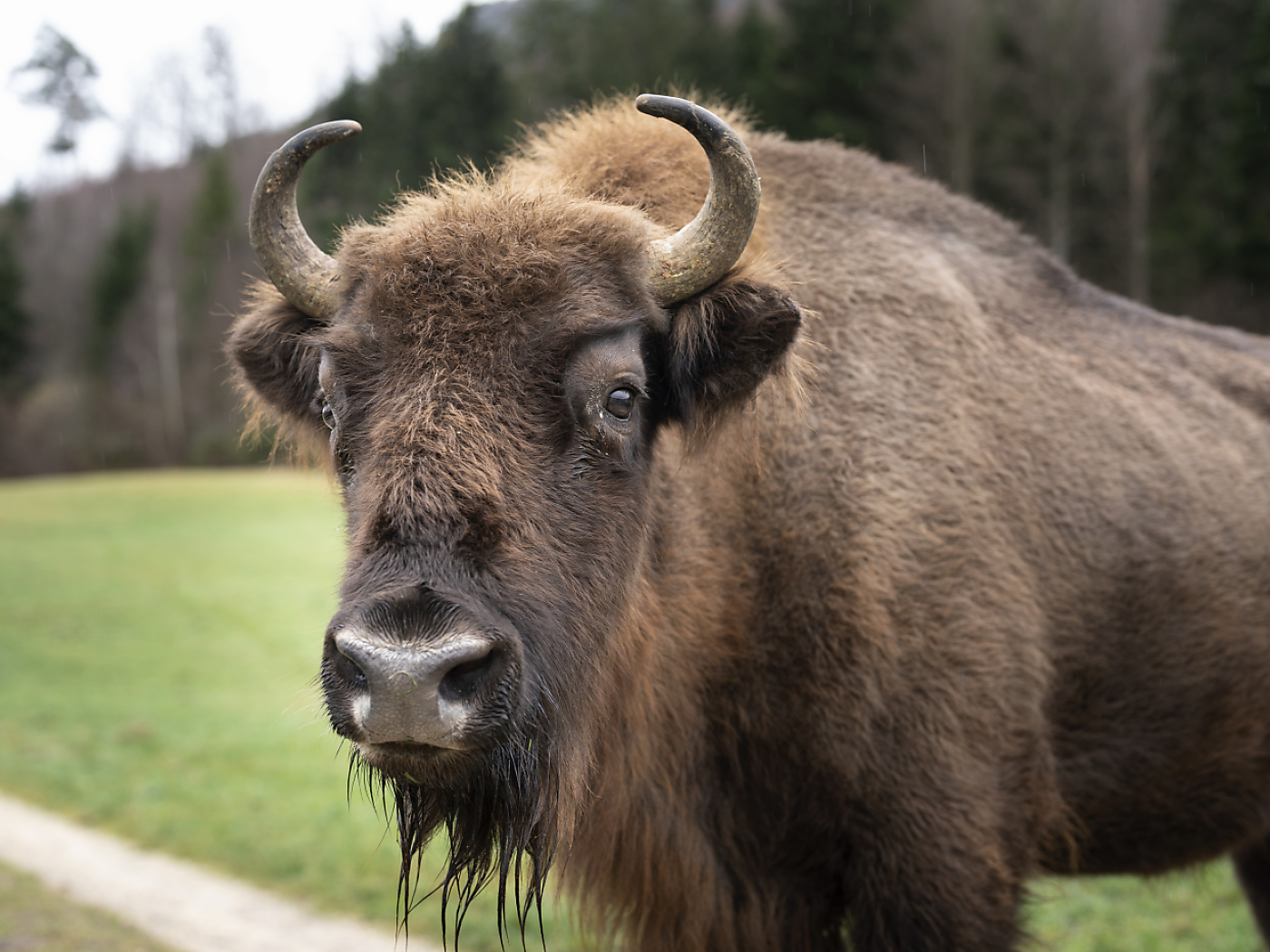
Epidemic hits bison breeding station in Switzerland

Several animals at the Swiss breeding station for endangered European bison in Suchy, canton Vaud, have contracted bluetongue. One bison cow died from the disease, which is transmitted by stinging insects.
+Get the most important news from Switzerland in your inbox
The disease was first detected in a bull at the breeding station on October 20, the Association of European Bisons in Suchy Forest said on Sunday. The animal was treated with anti-inflammatories and recovered.
Afterwards, two females also fell ill. One of them also recovered, but the second died on Friday after complications, according to the press release.
+ Will a project to reintroduce European bison into Swiss forests work?
There have been repeated outbreaks of bluetongue, which is not directly contagious, in Switzerland since 2007. It can affect all ruminants. It is not dangerous for humans. In affected animals, it leads to fever, breathing difficulties, signs of paralysis and miscarriages. Many animals die. There is a vaccination that can alleviate the symptoms.
In several European bison breeding stations, animals have died of bluetongue in recent months. The association emphasised that the species is still susceptible. According to the information, there were recently more than 10,000 bison in Eastern Europe and in conservation centres in Western Europe.
The European bison is the largest land mammal in Europe. The herbivores grow up to three metres long and have a shoulder height of up to 1.95 metres. Bulls can weigh up to 900 kilos. Compared to their American cousins, the bison appear slimmer and more long-legged. The bison living today are descended from 12 individuals that were brought together in 1922 and used to revive the species.
Translated from German by DeepL/ts
This news story has been written and carefully fact-checked by an external editorial team. At SWI swissinfo.ch we select the most relevant news for an international audience and use automatic translation tools such as DeepL to translate it into English. Providing you with automatically translated news gives us the time to write more in-depth articles.
If you want to know more about how we work, have a look here, if you want to learn more about how we use technology, click here, and if you have feedback on this news story please write to english@swissinfo.ch.

In compliance with the JTI standards
More: SWI swissinfo.ch certified by the Journalism Trust Initiative

























You can find an overview of ongoing debates with our journalists here . Please join us!
If you want to start a conversation about a topic raised in this article or want to report factual errors, email us at english@swissinfo.ch.